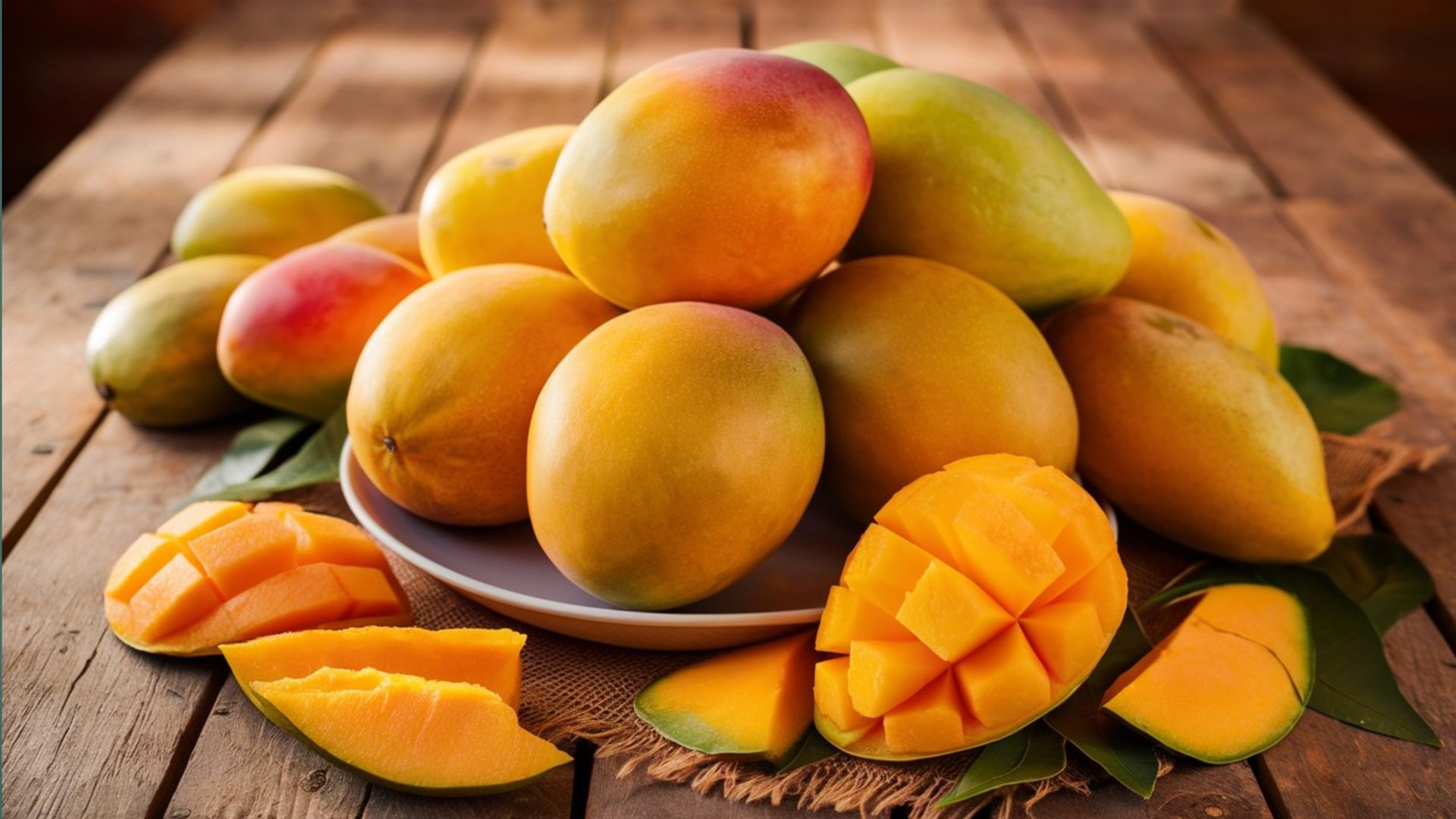The transition through menopause brings numerous health challenges for women, with cardiovascular risks taking center stage as hormonal changes create new vulnerabilities. Recent discoveries have unveiled a surprisingly simple solution that could help protect heart health during this critical life phase: the humble mango.
This tropical fruit, beloved for its sweet taste and creamy texture, has emerged as a potential game-changer for postmenopausal women seeking natural ways to support their cardiovascular system. The findings represent a significant shift in understanding how everyday food choices can profoundly impact long-term health outcomes.
The focus centers specifically on women who have completed menopause, a demographic facing heightened risks for heart disease, elevated blood pressure, and cholesterol imbalances. As hormone levels stabilize at lower concentrations, the protective effects that estrogen once provided for cardiovascular health diminish, leaving women more vulnerable to heart-related complications.
Understanding the postmenopausal cardiovascular challenge
Menopause marks a pivotal moment in women’s health, officially beginning twelve months after the final menstrual period. This transition typically occurs between ages 45 and 55, though individual experiences vary significantly based on genetics, lifestyle factors, and overall health status.
During this phase, declining estrogen levels contribute to various physiological changes that directly impact cardiovascular health. Blood vessels may become less flexible, making it harder for blood to flow efficiently throughout the body. Additionally, changes in fat distribution often lead to increased abdominal weight, which correlates with higher cardiovascular risk factors.
The hormonal shifts also affect how the body processes cholesterol, often leading to increases in low-density lipoprotein cholesterol while decreasing beneficial high-density lipoprotein levels. These changes create a perfect storm of cardiovascular risk factors that require proactive management through lifestyle interventions.
Traditional approaches to managing these risks often involve pharmaceutical interventions or dramatic lifestyle overhauls that can feel overwhelming. However, emerging understanding suggests that simple dietary additions might offer meaningful protection without requiring complete lifestyle transformations.
Revolutionary discoveries reveal mango’s heart benefits
- Dramatic blood pressure reduction occurs within hours
New understanding about daily mango consumption has revealed remarkable cardiovascular benefits for postmenopausal women. Evidence shows that consuming approximately one and a half cups of fresh mango daily can create significant improvements in heart health markers.
Women who incorporate mangoes into their daily routine experience systolic blood pressure reductions averaging six points within just two hours of consumption. This rapid response suggests that mangoes contain bioactive compounds that work quickly to support cardiovascular function.
The immediate nature of these effects indicates that the fruit‘s benefits extend beyond simple nutritional support to include acute physiological responses that could provide ongoing protection with regular consumption. The blood pressure reductions are particularly significant because even modest decreases in systolic pressure can translate to meaningful reductions in cardiovascular event risks.
For postmenopausal women already facing elevated risks, these improvements could provide crucial protection during this vulnerable life phase. The swift response time makes mangoes an appealing option for women seeking natural approaches to blood pressure management.
- Cholesterol levels improve significantly with daily intake
Daily mango consumption creates equally impressive improvements in cholesterol profiles among postmenopausal women. Total cholesterol levels can decrease by approximately 13 points, while low-density lipoprotein cholesterol shows similar reductions within just two weeks of regular consumption.
These improvements are particularly noteworthy because cholesterol management becomes increasingly challenging after menopause. The hormonal changes that occur during this transition often lead to unfavorable shifts in cholesterol ratios, making dietary interventions that can counteract these trends especially valuable.
The cholesterol benefits appear to stem from mangoes’ high fiber content combined with unique bioactive compounds that help the body process and eliminate excess cholesterol more effectively. The fruit’s natural enzymes may also play a role in optimizing lipid metabolism, creating multiple pathways for cardiovascular support.
Unlike pharmaceutical interventions that can carry side effects or require careful monitoring, mango consumption offers a natural approach to cholesterol management that most people can incorporate easily into their daily routines. The palatability of mangoes makes this intervention particularly sustainable compared to other dietary modifications.
- Blood sugar management improves compared to processed alternatives
Perhaps most surprisingly, mangoes cause smaller blood sugar spikes compared to refined carbohydrate sources like white bread. This finding challenges common assumptions about fruit consumption and blood sugar control, particularly for women dealing with metabolic changes during menopause.
Comparisons between mango consumption and processed carbohydrate intake demonstrate that despite mangoes’ natural sugar content, their fiber, enzymes, and other compounds help moderate the glycemic response. This suggests that mangoes can satisfy sweet cravings while providing more stable blood sugar levels than many processed alternatives.
For postmenopausal women, blood sugar management becomes increasingly important as insulin sensitivity often decreases during this life phase. Foods that can provide sweetness and satisfaction while supporting stable blood sugar levels offer significant advantages for long-term metabolic health.
The blood sugar benefits likely result from mangoes’ complex nutritional profile, which includes substantial fiber content that slows sugar absorption and various phytonutrients that may enhance insulin sensitivity. These combined effects create a more favorable metabolic response than would be expected from the fruit’s natural sugar content alone.
The science behind mango’s cardiovascular benefits
Mangoes contain an impressive array of nutrients that work synergistically to support heart health. The fruit provides substantial amounts of potassium, a mineral crucial for blood pressure regulation and proper heart function. Adequate potassium intake helps counteract the effects of sodium and supports healthy blood vessel function.
The antioxidant content of mangoes is equally impressive, with high concentrations of vitamins A, C, and E working together to combat oxidative stress that can damage cardiovascular tissues. These antioxidants help protect blood vessels from inflammatory damage while supporting the body’s natural repair processes.
Mangoes also contain unique bioactive compounds called mangiferin and other polyphenols that have been associated with cardiovascular protection. These compounds appear to support healthy inflammation responses and may help maintain blood vessel flexibility as women age.
The fiber content of mangoes contributes to their cardiovascular benefits by supporting healthy cholesterol levels and promoting satiety, which can help with weight management. The combination of soluble and insoluble fiber provides multiple mechanisms for supporting heart health beyond simple nutritional value.
Practical ways to maximize mango’s heart benefits
Incorporating mangoes into daily nutrition doesn’t require complicated recipes or significant meal planning changes. Fresh mango slices can be added to morning yogurt or oatmeal, providing natural sweetness while delivering cardiovascular benefits from the day’s first meal.
Smoothies represent another excellent vehicle for mango consumption, allowing for easy combination with other heart-healthy ingredients like leafy greens, berries, and nuts. The creamy texture of mangoes makes smoothies naturally satisfying without requiring added sugars or artificial thickeners.
Savory applications for mangoes can expand consumption opportunities throughout the day. Fresh mango salsa pairs beautifully with grilled fish or chicken, while diced mango can add tropical flair to salads containing heart-healthy ingredients like avocado and nuts.
For convenient snacking, pre-cut mango portions can be paired with protein sources like nuts or seeds to create balanced mini-meals that support stable blood sugar levels while delivering cardiovascular benefits. This approach makes it easy to reach the recommended intake of approximately one and a half cups daily.
Considerations for optimal heart health benefits
While mango consumption shows promising cardiovascular benefits, maximizing these effects requires attention to overall dietary patterns and lifestyle factors. Women who experience the most significant improvements typically follow generally healthy eating patterns that support the mango intervention.
Portion control remains important even with healthy foods like mangoes. Specific quantities provide benefits without excessive caloric intake, suggesting that moderation enhances rather than limits the fruit’s positive effects on cardiovascular health.
Timing of mango consumption may also influence benefits, though consistent daily intake appears more important than specific timing strategies. Spreading mango consumption throughout the day may help maintain steady levels of beneficial compounds in the bloodstream.
Individual responses to dietary interventions can vary based on genetics, existing health conditions, and medication use. Women taking blood pressure medications or cholesterol-lowering drugs should discuss significant dietary changes with healthcare providers to ensure optimal coordination of treatments.
Long-term implications for women’s heart health
The mango discoveries represent part of a broader understanding that food-based interventions can provide meaningful cardiovascular protection for postmenopausal women. This approach offers hope for women seeking natural ways to support their heart health during a vulnerable life phase.
The accessibility and affordability of mangoes make this intervention particularly valuable compared to expensive supplements or complex dietary programs. Most grocery stores carry fresh mangoes year-round, and frozen options provide convenient alternatives when fresh fruit isn’t available.
The sustainability of mango consumption as a long-term intervention appears promising given the fruit’s palatability and versatility. Unlike restrictive dietary approaches that become difficult to maintain over time, adding delicious foods like mangoes to existing eating patterns tends to be more sustainable.
Future understanding will likely explore optimal consumption patterns, potential interactions with other heart-healthy foods, and long-term outcomes for women who incorporate mangoes into their regular diets. The initial findings provide strong encouragement for continued exploration of this promising dietary intervention.
As understanding of nutrition’s role in cardiovascular health continues evolving, simple interventions like daily mango consumption may prove to be powerful tools for supporting women’s heart health throughout the postmenopausal years and beyond.














